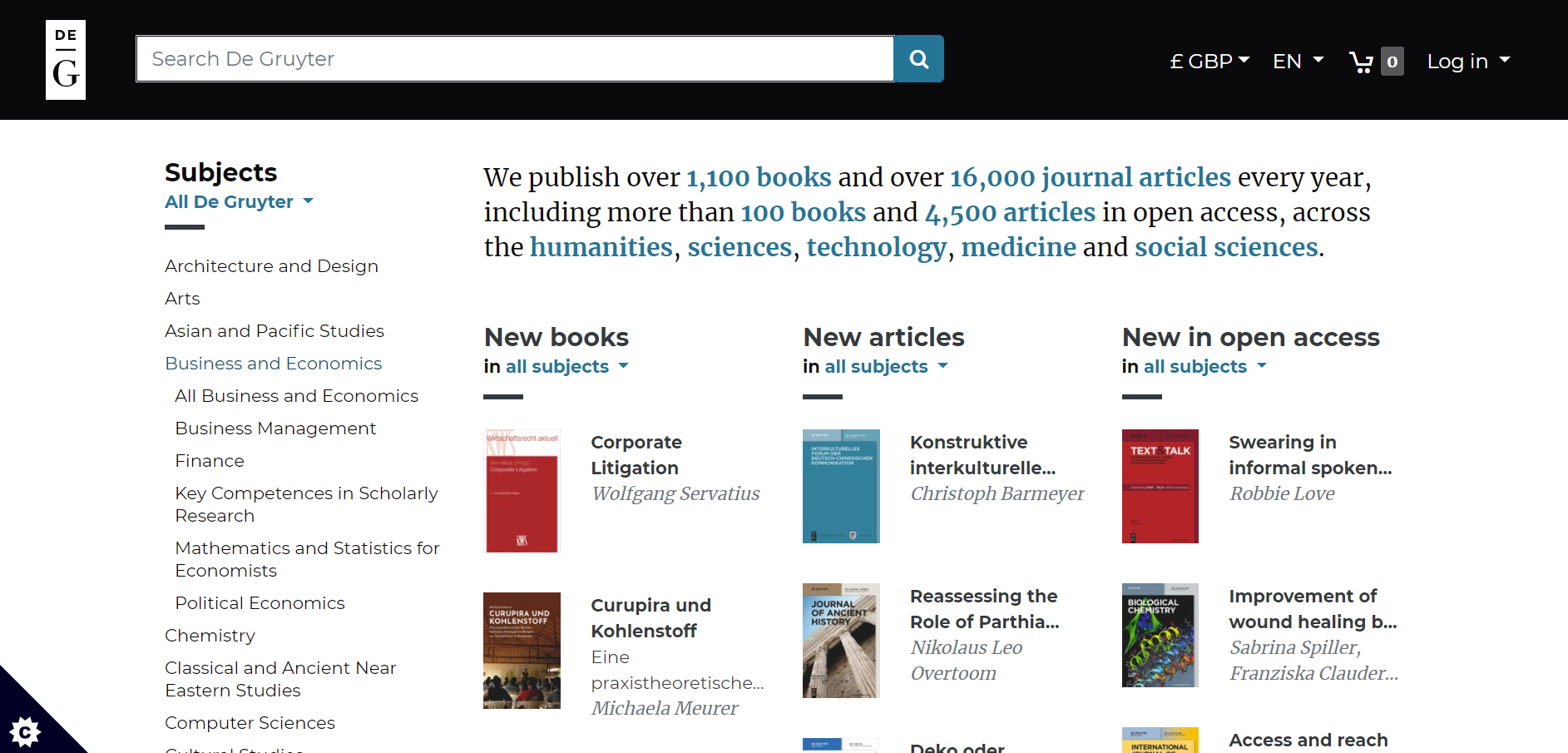This cooperation marks a big step forward in the digital transformation of our business. The partnership with 67 Bricks forms part of our commitment to invest further in a modern and robust digital technology architecture as the bedrock of our publishing business – Carsten Buhr, Managing Director, De Gruyter
Headline Successes
- DeGruyter successfully acquired Brill within two years of platform release – the new platform will enable much easier integration of Brill’s content and data
- 40% increase in webshop revenue
- Platform 5x faster
- Website availability nearly 100%
- Traffic increase of +200% increase in search engine traffic, +20% in site visits, +15% page views
- New ability to build new user-led products and services quickly, based on user requirements, data and business strategy
- Won Open Athens Best Publisher UX Award in 2022
The brief
De Gruyter were delivering their huge content library (over 15 million products) on a restrictive off-the-shelf solution. It was less and less able to deal with the growing volume and complexity of content and data it had to manage, and the team realized that if it was to provide a better user experience and keep up with the fast-paced digital world, it needed to build something that delivered for both their customers and their business goals.
To do this, De Gruyter formed a new partnership with 67 Bricks to create a new platform that could handle such an expansive content library, as well as the millions of users it served. “No one gets our data quite like 67 Bricks. We found them to be a perfect fit,” said Scott.
Phase One – Discovery
At the beginning of the project, 67 Bricks spent time understanding the problems being experienced by De Gruyter and their users, as well as their future ambitions for growth, new product development and future content and data types. 67 Bricks’ knowledge and experience of the wider publishing industry data and content was an important factor in background, research, and preparation, and it was in this careful, unrushed examination that real trust between the two teams evolved, and a truly collaborative relationship was built.
Phase two – Walking Skeleton
67 Bricks created a ‘walking skeleton’ using existing De Gruyter open access content. This tested the principles of being able to work with existing content and data, identified where work would be required moving forward, and provided demonstrable functionality around content rendering and discovery. The skeleton also provided the opportunity for the two development teams to try agile working – working flexibly, building out user needs iteratively, and progressing via small, incremental improvements. The outcome of this phase was very successful, and provided De Gruyter with confidence for the next stage.
Phase three – Full build and launch
The final build took just twelve months. 67 Bricks team was given a lot of flexibility to exercise its knowledge and expertise to build out the infrastructure and baseline functions of the platform solution. Integrations included a webshop, CRM and data warehouse. The initial launch went live with 120,000 scholarly books, 800,000 journal articles and was visited by approximately 2 million monthly visitors. The platform was developed to handle forecasted increases in usage of 200% over a 12 month period, and was developed with a flexible UI that comfortably enables the delivery of other content types such as database products.
De Gruyter’s new digital platform is a showcase in modern platform facilitation. It not only repositions how users currently access De Gruyter’s content but is dynamic and scalable enough to handle the yet to be imagined use cases of the digital future. Excellent work by 67 Bricks – David Worlock, Outsell
The results
The new degruyter.com is more scalable and dynamic than ever before and allows the publisher to build new tools quickly and responsively. The platform also offers the new ability to change, amend and deploy to the front end 24/7, so De Gruyter’s ability to react to user data and feedback can be in hours, not weeks.
Scott continues: “The new platform is 5x times faster than it used to be, quicker and easier for users to access, plus it’s more stable and secure – website availability is now close to 100%. Additionally, we are able to manage, process, analyze and use data more accurately (and make it available for librarians as well) due to a newly-implemented product data warehouse where all the data sits in one place.
Scott adds: “The successful launch has given us a new-found belief in what technology-led projects can do at De Gruyter and we are confident that in the long run we will see a considerable increase in user satisfaction.”





